|
Working together towards sustainability
MPS aims to help improve sustainability in the global flowers and ornamentals sector through means such as reducing the environmental impact of crop protection products throughout the chain. We are working together with numerous different parties to realise this ambition.
The international FSI sustainability network is growing rapidly, as are other national and international sustainability initiatives such as IMVO, aided significantly by the government. Increasing numbers of partners throughout the flowers and ornamentals chain are also joining in as they recognise the power inherent in joining forces to make progress. MPS is supporting the sector�s ambitions by providing knowledge and tools.
This issue of MPS NewsFlash contains more information about our collaboration with FSI. We�ll also take a look at the upcoming innovations in our MPS-ABC programme and the updated usage registration.
Yolande van den Boom, CEO MPS Group
|

|
|
|
FSI Chain Transparency Project
|
|
|
The MPS-NewsFlash editors interviewed two members of the MPS project team about the role of MPS and the project�s objective.
FSI and MPS
The Floriculture Sustainability Initiative (FSI) is a sustainability network organisation consisting of various national and international parties (agriculturalists, growers, trade companies, retailers, sector organisations and the owners of certification schemes) and NGOs working together towards a more sustainable flowers and ornamentals sector. MPS is involved in this as part of its ambition to help reduce environmental impact throughout the chain. FSI also unites parties in a joint effort to make sustainability efforts more transparent. Harold Beek, Deputy Director at MPS: �One of FSI�s greatest achievements is the collaboration among parties in the chain. The parties are continually engaging with one another in various groups and combinations to discuss and accelerate progress.� FSI�s main goal is to ensure that 90% of all products traded by its members are purchased and traded sustainably by 2020.
|
|
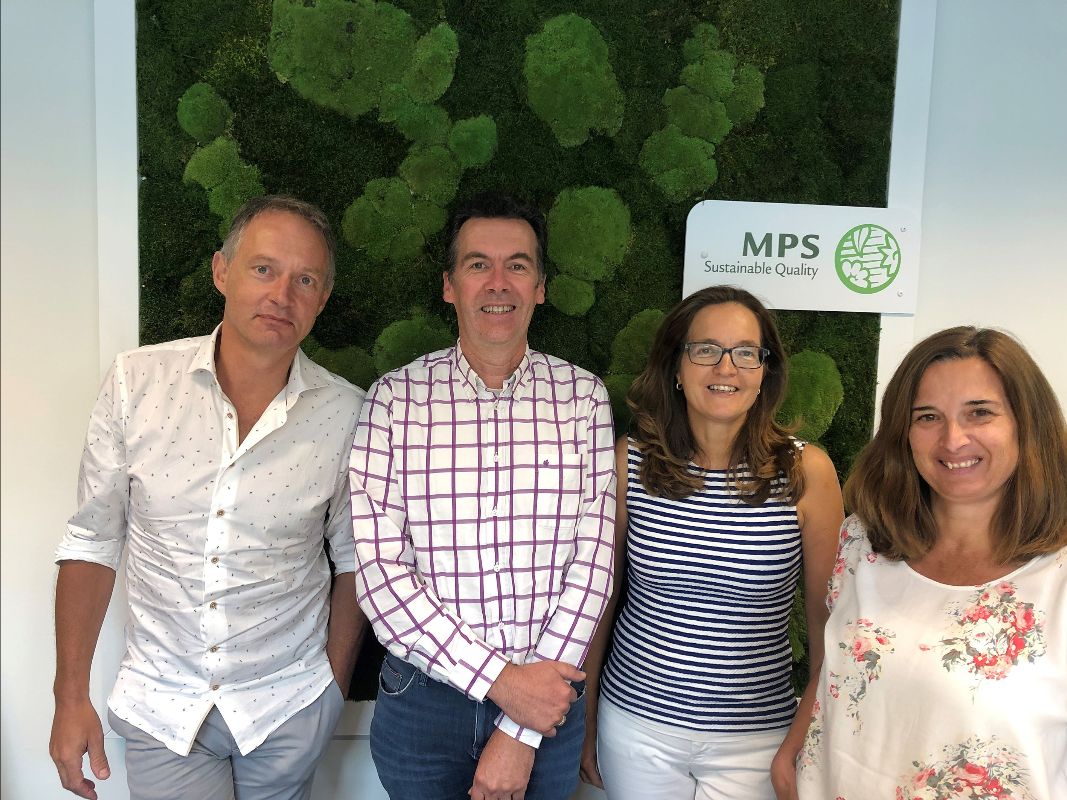
|
|
MPS project team: Remco Jansen, Harold Beek, Anja Kodde and Luisa Mealha-Stigter
|
|
|
Transparency regarding the use of substances is a central focus of the Chain Transparency project that MPS has been carrying out together with FSI since 2017. �MPS is working on a number of issues that are part of the larger context of sustainability instruments,� says Remco Jansen, Commercial Manager at MPS. Examples include innovative tools and certification programmes.
An important goal of the project is to reduce total environmental impact. �We will achieve this through intensive collaboration with knowledge institutes such as Proeftuin Zwaagdijk and by running an Integrated Pest Management (IPM) project with Koppert Biologicals, for example,� says Beek. �The results will increase our knowledge and enable organisations like MPS to develop solutions.�
MPS develops tools based on its collaborations with stakeholders and contributions to research projects such as Chain Transparency. This includes tools that make sustainability efforts measurable (for example, the Environmental Impact Indicator for Crop Protection Products; MPS-MIND) and management tools. Beek: One example of a management tool is the Integrated Pest Management (IPM) strategy tool that we are involved in developing together with Club van 100 and PPS TKI. We are also collaboratively developing a method of making IPM measurable. The knowledge that we gain from other projects, such as the Chain Transparency project, is also very useful. By making connections between these activities, we�re able to devise sustainability solutions, such as improving MPS-MIND.�
�The market is showing a shift at the macro level towards instruments that help to improve sustainability. The MPS certification programmes and tools are a means of making sustainability efforts transparent and reliable. So you�ve got everything from pure certification to the measurement of sustainability efforts,� says Remco Jansen.
|
|
|
The Chain Transparency project is focusing on monitoring the chains for seven flowers and ornamentals products (Chrysanthemum, Kalanchoe, Anthurium, potted Phaelonopsis, Lavender, Miltonia and Dendrobium) for a period of three years. This entails following the entire chain from starting materials to finished products, with samples being taken at various stages in the chain. These will test cuttings, rooting and cultivation, with the aim of gaining insight into environmental impact throughout the chain, particularly with respect to crop protection products. According to Beek, greater knowledge and understanding is necessary to enable a reduction in the use of these substances and the resulting residues, and to ensure that market requirements are met. The entire chain is being investigated, which can mean that even if a greater quantity of crop protection products is used in one part of the chain, there is a net reduction in the total amount used throughout the chain.
Jansen adds: �In addition to developing our knowledge, we also need to create awareness. The Chain Transparency project focuses mainly on continents such as Africa and Central America, because these regions are the source of much of the cutting material used in the sector. Growers of the end products have to realise that they can�t work in isolation; instead, they�re dealing with both indirect influences and chain influences. This highlights the importance of collaboration!�
|
|
|
MPS and FSI in Central America
FSI and MPS visited Central America together (Costa Rica, Guatemala and Nicaragua) from 16 to 25 September.
The visit was part of the Chain Transparency project, which is investigating sustainability solutions in the chain. Local growers, exporters and relevant stakeholders were also informed about market developments, as well as about global developments and requirements relating to sustainability.
|
|
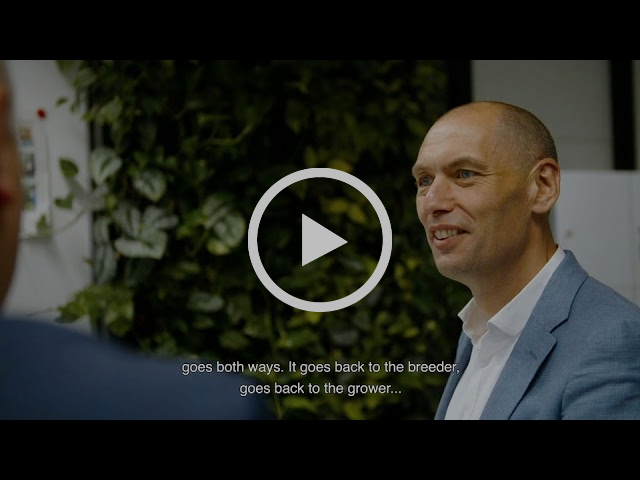
|
|
The following interview with Marcel Zandvliet (Director Marketing/CSR, Dutch Flower Group) was screened during the meetings in Central America.
|
|
|
Visits to growers in Costa Rica, Guatemala and Nicaragua were part of the trip. During these visits, we were able to witness the efforts made by growers to meet the FSI ambitions and the certification requirements that play a role in the market. We also found out about the work they are doing to further improve their ecological footprint, their qualifications for MPS-ABC, and towards meeting the requirements of programmes such as MPS-GAP. Examples of this work are the installation of solar panels, rainwater collection initiatives, and the installation of biobeds.
|
|
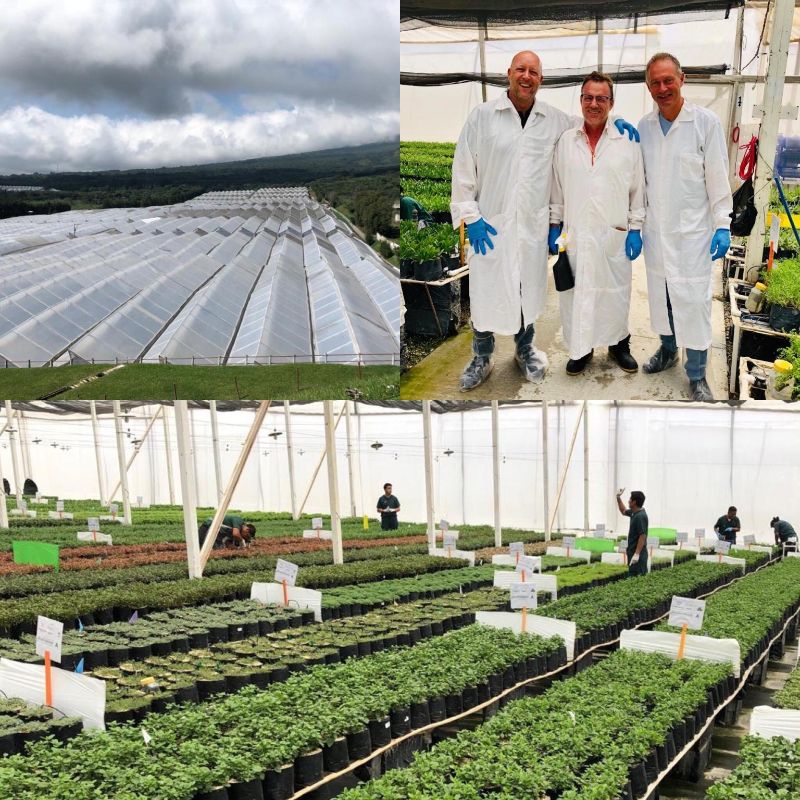
|
|
Antigua Flowers/Fides Guatemala
|
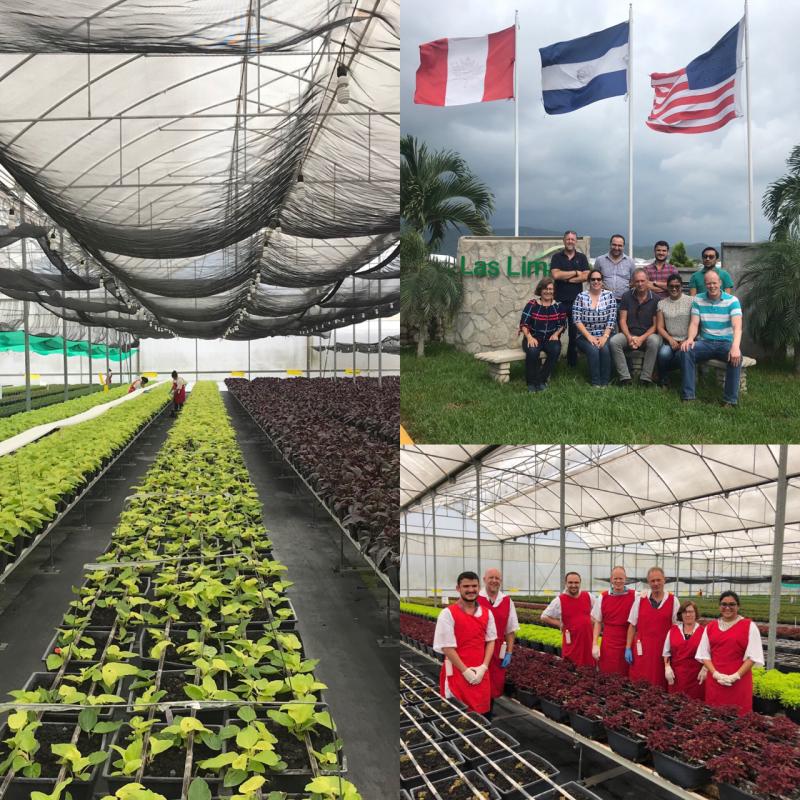
|
|
Las Limas, Ball Horticultural
|
|
|
In collaboration with FSI and local partners, seminars were organised in both Costa Rica and Guatemala to inform local growers about joint projects currently under way. In Costa Rica, the seminar was held at Orange Plaza in collaboration with the Dutch Embassy in San Jose. The seminar in Guatemala was organised in partnership with Agexport. Both seminars were attended by more than 35 growers. FSI and MPS made a presentation, which was followed by an energetic discussion on three themes: traceability, customer demand and the use of crop protection products. The growers received valuable information which will be used in the Chain Transparency project.
|
|
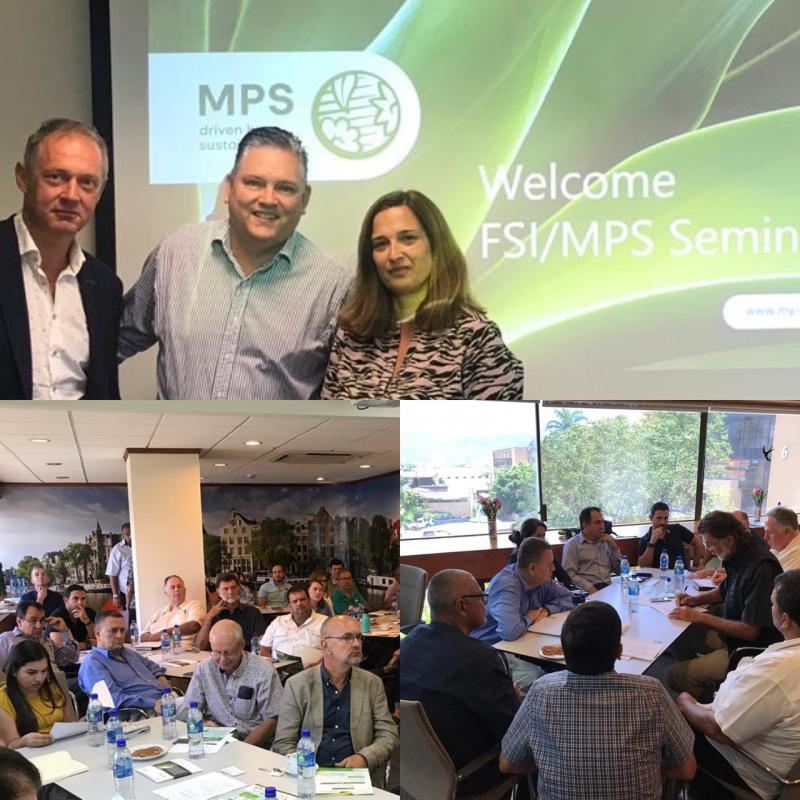
|
|
Kick-off seminar, Dutch Embassy�s Orange Plaza in San Jose, Costa Rica
|
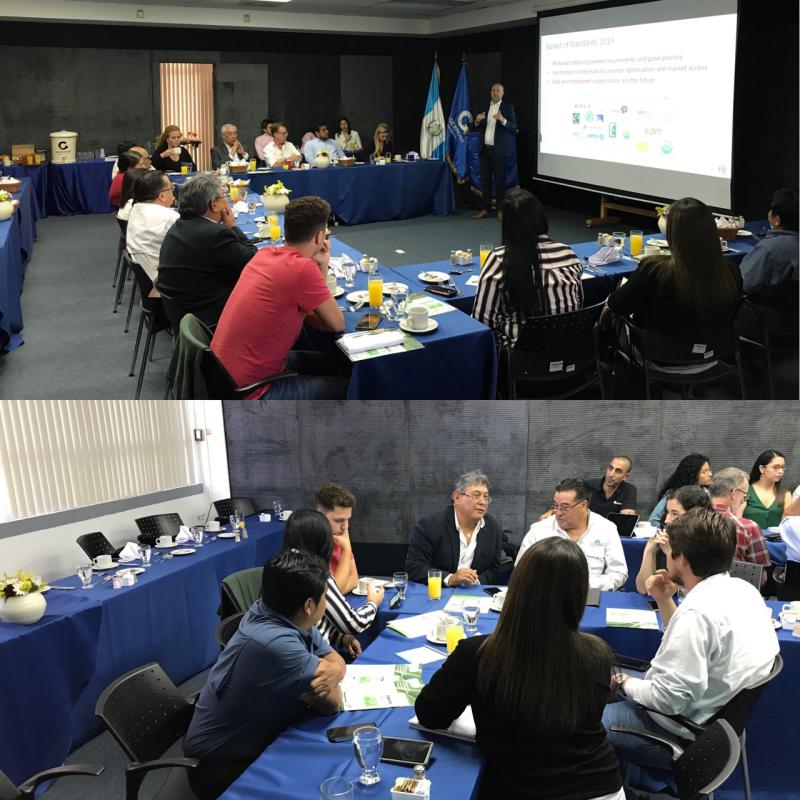
|
|
FSI/MPS seminar, Agexport in Guatemala
|
|
|
Salon du V�g�tal in Nantes
Round table meeting about the acceptance of IPM in the market
|
|
|
During Salon du V�g�tal, MPS and Excellence V�g�tale/VAL�HOR organised a meeting about the acceptance of Integrated Pest Management (IPM) by the market. Attendees included representatives from the French Ministry of Agriculture and the retail and trade sectors, as well as growers. In essence, the meeting discussed the problem of purchasers rejecting �poor quality� products, for example due to the presence of traces of useful insects. The conclusion reached during the meeting was that research needs to be done to find out the �damage threshold� that would be acceptable to consumers. Training and improved communication relating to IPM are also necessary.
|
|
|
Marie-Fran�oise Petitjean
Coordinator, MPS France
|
|
|
MPS present at 'Good Agricultural Practices' meeting
|
|
|
Last week, there was a meeting on �Good Agricultural Practices� in Valencia (Spain). This was initiated by ASFPlant, Valencia�s association of pot plant producers.
During the morning, attendees discussed good agricultural and hygienic practices in the flowers and ornamentals sector, followed by a session on the vital importance of well-organised crop registration. In the afternoon, Ren� Rombouts (Coordinator, MPS Spain and Portugal, see photo) gave a presentation on the differences between MPS-GAP and GLOBALG.A.P., in which he made reference to the FSI2020 requirements and other related matters.
|
|
|
|
The chain parties that endorse the FSI2020 objectives expect growers to comply with credible record-keeping from 2021 onwards. This criterion is already effectively covered by MPS-ABC certification. There is a clear increase in the number of companies in the Spanish flowers and ornamentals industry that hold MPS-ABC and MPS-GAP certification, with the current total being 135 companies.
|
|
|
MPS-ABC programme changes and updated usage registration
Sustainability is becoming increasingly important, including in the horticulture sector. Society and the market are changing, and MPS is following suit.
This means that there will be changes to the MPS-ABC certification programme. We�ll publish the updated MPS-ABC Certification Scheme on our website at the end of 2019, and the new scheme will come into effect at the end of 2020. The registration environment will be updated as a result of these changes, and participants will be transferred in stages, commencing early in 2020. MPS-ABC participants have already been informed about the upcoming changes.
Overview of the most significant changes:
- Mandatory registration per application of plant protection products and fertilisers.
- Tighter requirements for the purchase of starting materials and additional purchasing, in order to further close the chain.
- Retroactive registration will become more difficult.
- Legal authorisation of plant protection products will be more actively checked on a per country basis.
Participants will be kept informed via the MPS-Newsflash and e-mail messages.
If you have any questions, please feel free to contact:
Service & Support
T +31 (0)174 615 715
E info@my-mps.com
|
|
|
|
If you have any questions about any of the topics in this Newsflash, please contact Service & Support.
T +31 (0)174 615 715
E info@my-mps.com
|
|
|
|
MPS has compiled this newsletter with great care.
MPS is not liable for any consequences � such as any losses incurred or any loss of profit � arising from action undertaken in response to this newsletter.
|
|
|
|
|
|




 Arts and Entertainment
Arts and Entertainment Business and Industry
Business and Industry Computer and Electronics
Computer and Electronics Games
Games Health
Health Internet and Telecom
Internet and Telecom Shopping
Shopping Sports
Sports Travel
Travel More
More